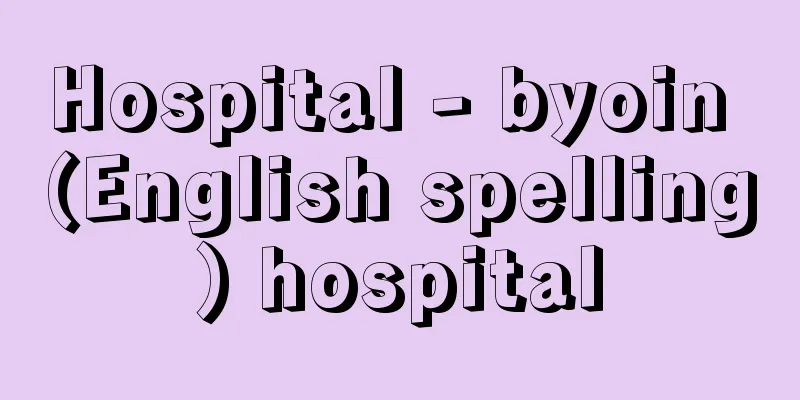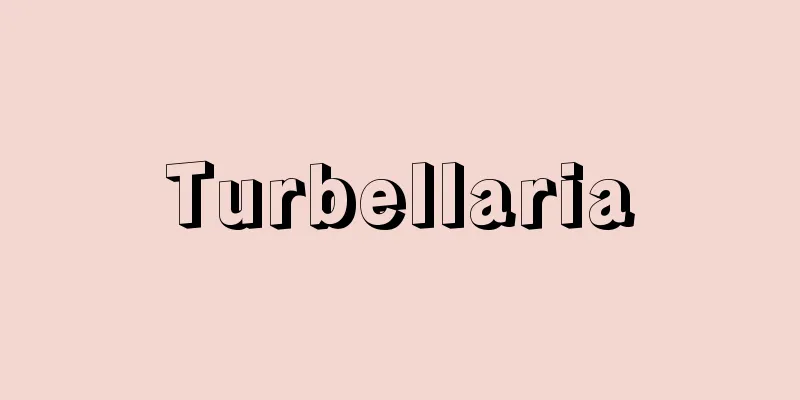Hospital - byoin (English spelling) hospital

|
A hospital is a place where doctors or dentists provide medical care and has beds to accommodate patients. The Medical Care Act defines a hospital as "a place where doctors or dentists provide medical or dental care for the public or a specific large number of people, and has facilities for the hospitalization of 20 or more patients. A hospital must be organized and operated with the primary purpose of providing convenience for injured and sick people to receive scientific and appropriate medical treatment" (Article 1-5 of the Medical Care Act). Medical care facilities with 19 or fewer beds are called clinics. As of 2018, the number of hospitals was 8,372, and is continuing to decline (Ministry of Health, Labor and Welfare 2018 Medical Facility Survey). There are two types of hospitals: psychiatric hospitals and general hospitals (hospitals other than psychiatric hospitals; until 1998, infectious disease hospitals were excluded, and until 2012, tuberculosis sanatoriums were excluded). Of these, there were 7,314 general hospitals and 1,058 psychiatric hospitals. When classified by operator, medical corporations were the most common with 5,764 facilities, followed by public medical institutions with 1,207, the national government with 324, and individuals with 187 (Ministry of Health, Labor and Welfare, 2018 Medical Facility Survey). The Medical Care Act states that "among general hospitals, hospitals that meet certain requirements may be called designated function hospitals or regional medical support hospitals" (Article 4 of the same act). A designated functional hospital is a hospital approved by the Minister of Health, Labour and Welfare as a hospital with roles and functions such as providing advanced medical care, developing and evaluating advanced medical technology, and providing training on advanced medical care. As of June 2019, there were 86 designated functional hospitals. A community medical support hospital is a hospital that has the capacity to support "family doctors" who are responsible for the frontline of community medical care in the community, and has structures and facilities appropriate for a hospital that aims to ensure community medical care. Specifically, requirements include providing medical care to referred patients (including reverse referral of patients to family doctors), implementing shared use of medical equipment, providing emergency medical care, providing training for local medical workers, and having at least 200 hospital beds. As of October 2018, there were 604 facilities in total (Ministry of Health, Labor and Welfare 2018 Medical Facility Survey). As of August 2019, the Ministry of Health, Labor and Welfare's "Study Group on the Status of Specified Function Hospitals and Regional Medical Support Hospitals" is considering strengthening the governance system for specified function hospitals, whether to implement a renewal system after approval, and reviewing approval requirements, including third-party evaluation. For regional medical support hospitals, consideration is being given to adding the role of supporting regions with few doctors, and reviewing the functions required to support family doctors in the region, taking into account the status of secondary medical care areas and the "regional medical initiative." Many hospital staff (medical professionals) are required to hold national qualifications, and based on the law, they are granted monopoly on business (prohibiting unqualified persons from performing that business) and monopoly on names (prohibiting unqualified persons from using the name of a qualification or a confusingly similar name). The main occupations of medical professionals include the following: doctors, public health nurses, midwives, nurses, pharmacists, clinical laboratory technicians, clinical radiologists, registered dietitians, nutritionists, physical therapists, occupational therapists, speech-language-hearing therapists, orthoptists, clinical engineers, paramedics, medical social workers (MSW), social workers, psychiatric social workers (PSW), clinical psychologists, medical record managers, medical administration, etc. In hospitals that have a dental department, these include dentists, dental hygienists, dental technicians, etc. Under the direction of a doctor, each specialist will treat patients according to their respective roles, but "team medical care" is considered important for good medical care. Team medical care means that doctors work together with nurses and other specialists to treat patients while making use of the knowledge and skills of each specialist, and in recent years, the idea that patients and their families should also cooperate in medical care as part of the team (patient participation in medical care) is becoming more widespread. Qualified personnel such as doctors and nurses are legally bound to maintain confidentiality regarding any patient information that they come into contact with during medical treatment. Hospital staff are also expected to adhere to medical and professional ethics and make efforts to ensure the quality and safety of medical care. [Yukihiro Maeda February 17, 2020] [Reference item] | |Source: Shogakukan Encyclopedia Nipponica About Encyclopedia Nipponica Information | Legend |
|
医師または歯科医師が医療の提供を行う場所であり、患者を収容するための病床(ベッド)をもつ施設をいう。医療法では、「医師又は歯科医師が、公衆又は特定多数人のため医業又は歯科医業を行う場所であつて、20人以上の患者を入院させるための施設を有するものをいう。病院は、傷病者が、科学的でかつ適正な診療を受けることができる便宜を与えることを主たる目的として組織され、かつ、運営されるものでなければならない」と定義されている(同法1条の5)。病床数が19床以下の医療提供施設は診療所とよばれる。病院数は、2018年(平成30)の時点では、8372施設であり、減少傾向が続いている(厚生労働省平成30年医療施設調査)。 病院の種類には、精神科病院、一般病院(精神科病院以外の病院。1998年までは伝染病院、2012年までは結核療養所を除く)がある。その内訳は、一般病院7314施設、精神科病院1058施設である。開設者による分類をみると、医療法人が5764施設ともっとも多く、公的医療機関が1207施設、国が324施設、個人が187施設となっている(厚生労働省平成30年医療施設調査)。医療法では、「一般病院のうち、所定の要件を満たした病院は、特定機能病院、地域医療支援病院と称することができる」とされている(同法4条)。 特定機能病院とは、高度の医療の提供、高度の医療技術の開発と評価、高度の医療に関する研修などの役割機能をもつ病院として厚生労働大臣の承認を得た病院である。2019年(令和1)6月時点で86施設である。 地域医療支援病院とは、地域の第一線の地域医療を担う「かかりつけ医」などを支援する能力を備え、地域医療の確保を図る病院としてふさわしい構造設備等を有する病院である。具体的には、紹介患者に対する医療の提供(かかりつけ医等への患者の逆紹介も含む)、医療機器の共同利用の実施、救急医療の提供、地域の医療従事者に対する研修の実施、病床数200床以上などの要件が定められている。2018年10月の時点の施設数は604施設である(厚生労働省平成30年医療施設調査)。 2019年8月現在、厚生労働省の「特定機能病院及び地域医療支援病院のあり方に関する検討会」において、特定機能病院については、ガバナンス体制の強化、承認後の更新制の是非、第三者による評価受審を含めた承認要件の見直しの検討が進められている。地域医療支援病院については、医師の少ない地域を支援する役割の追加、二次医療圏のあり方や「地域医療構想」を踏まえ、地域でかかりつけ医等を支援するために必要とされる機能の見直しの検討が進められている。 病院の職員(医療従事者)は国家資格などを必要とするものが多く、法令に基づき、業務独占(無資格者が、その業務を行うことの禁止)、名称独占(無資格者が、資格の名称または紛らわしい名称を使用することの禁止)が認められている。 医療従事者のおもな職種としては、以下のようなものがあげられる。医師、保健師、助産師、看護師、薬剤師、臨床検査技師、診療放射線技師、管理栄養士、栄養士、理学療法士、作業療法士、言語聴覚士、視能訓練士、臨床工学技士、救急救命士、医療ソーシャル・ワーカー(MSW)、社会福祉士、精神保健福祉士(PSW)、臨床心理士、診療情報管理士、医療事務など。歯科をもつ病院の場合には、歯科医師、歯科衛生士、歯科技工士などである。 医師の指示のもと、各専門職はそれぞれの役割に応じて診療にあたることになるが、良い医療のためには「チーム医療」が重要とされている。チーム医療とは、医師が看護師や他の専門職と協力し、各専門職の知識や技能を生かしながら患者の診療にあたることであり、近年では、患者や家族もチームの一員として診療に協力することが必要(患者の医療参加)という考え方も広まりつつある。 医師や看護師など有資格者には、診療に際し、知りえた患者の情報に関する守秘義務規定が法的に定められている。また、病院の職員には医の倫理、職業倫理が強く求められており、医療の質と安全の確保に向けた努力が求められている。 [前田幸宏 2020年2月17日] [参照項目] | |出典 小学館 日本大百科全書(ニッポニカ)日本大百科全書(ニッポニカ)について 情報 | 凡例 |
Recommend
Sievert, RM (English spelling) SievertRM
…Adopted as a unit of the International System of...
Elgin Marbles
The general term for the large collection of ancie...
exponent
…(1) It is used in various different meanings in ...
Hepatitis virus
These are viruses that cause viral hepatitis. Thi...
Filipendula auriculata
…[Yamanaka Futoshi]. … *Some of the terminology t...
Cahokia Ruins - Kahokia Ruins
... refers to a prehistoric American Indian cultu...
Semi-Automatic Ground Environment
…Abbreviation for Semi-Automatic Ground Environme...
Giant stink bug - Giant stink bug
...The sugarcane long-winged bug, Cavelerius sacc...
Fumotoshida - Fumotoshida
An evergreen perennial fern of the Acanthaceae fam...
Ylang-ylang tree
An evergreen tall tree of the Annonaceae family. I...
Freedom of Religion
Freedom to believe in a religion and to practice ...
Christian Culture - Christian Culture
A general term for the culture that was introduced...
Buitenzorg
...Population: 272,000 (1990). Located about 60 k...
Tokuseimongon - Tokuseimongon
The correct term is the "tokusei guarantee ph...
guinea pig
...life span is 2 to 3 years. (3) guinea pig, rod...









